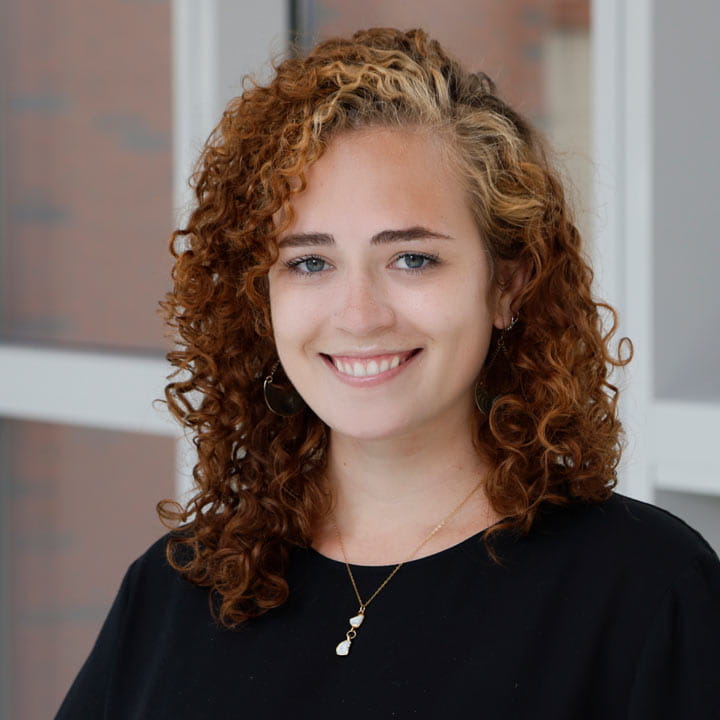 When you or someone you love suffers from confusing and distressing mental health concerns, such as psychosis, it can feel lonely and as if nothing will help.
When you or someone you love suffers from confusing and distressing mental health concerns, such as psychosis, it can feel lonely and as if nothing will help.
However, psychosis is quite common. In fact, nearly three out of every 100 young people will experience a psychotic episode, and psychotic symptoms occur in people from every social, cultural, economic, ethnic and racial background.
The mental and behavioral health experts at The Ohio State University Wexner Medical Center in Columbus, Ohio, want you to know that help is available, and recovery is possible. We’ve assembled a multidisciplinary team in our award-winning EPICENTER program who will work with you and your support network to develop a treatment plan that is both effective and sustainable.
There is no judgment attached to the experience or diagnosis of psychosis. At the Ohio State Wexner Medical Center, we emphasize early intervention and personalized, compassionate care. We treat people of all backgrounds and are an LGBTQ+ friendly clinic, so no matter who you are, we will provide the comprehensive care you need to get better.
What is psychosis?
Psychosis is a collection of symptoms that can impact an individual’s internal and external perceptions, beliefs and experiences. It can cause you to struggle to determine what’s real or not. Hallmarks of psychosis include:
- Hallucinations – This is when someone hears or sees things that others don’t. Auditory hallucinations, which include hearing voices, are the most common, but hallucinations can occur with other senses as well.
- Delusions – These are strongly held beliefs despite evidence that the beliefs are not true.
Psychosis isn’t a mental health diagnosis, rather it’s a set of symptoms of certain mental health and physical conditions. First episode psychosis (FEP) simply refers to when someone experiences psychosis or psychotic symptoms for the first time. For some, their psychotic symptoms require lifelong treatment and management.
What causes psychosis?
We’re still learning about why psychosis happens, but it’s most likely a combination of factors. Factors that contribute to psychosis include:
- Age – Symptoms of psychosis most commonly emerge in the teenage and early adult years.
- Genetics – Psychosis has a strong genetic basis, often running in families, but there is not any genetic testing that exists now.
- Trauma – A history of trauma can lead to a higher likelihood of psychosis.
- Substance use – The use of marijuana, stimulants, hallucinogens, amphetamines and other substances can lead to psychosis.
- Physical conditions – Some medical conditions can cause symptoms of psychosis.
- Mental health conditions – Psychosis is a symptom of some mental health conditions, such as schizophrenia, bipolar disorder and major depressive disorder.
Types of psychotic-spectrum disorders
Psychotic-spectrum disorders are serious mental health conditions that feature psychosis. Those disorders include:
- Schizophrenia – This is a mental health disorder associated with persistent psychotic symptoms without marked mood symptoms, such as depressed mood or mania.
- Schizoaffective disorder – This occurs when someone has persistent symptoms of psychosis, resembling schizophrenia, but with additional mood symptoms.
- Bipolar disorder with psychotic features – Approximately half of individuals who suffer from bipolar disorder will experience psychotic symptoms during an active mood episode.
- Major depressive disorder with psychotic features – Also known as unipolar depression, approximately 15% of individuals with major depressive disorder will experience psychotic symptoms.
- Substance-induced psychosis – Use of illicit or prescribed substances can result in psychotic symptoms while intoxicated as well as beyond this period. Individuals experiencing substance-induced psychosis are at a much higher risk of developing chronic symptoms.
Early warning signs and symptoms of psychosis
Early signs of psychotic illnesses may be hardly noticeable but can become more disruptive and distressing over time. Even though these signs can be common issues, especially for adolescents, it’s important to talk with a health care provider about any changes to lessen the risk of developing a psychotic illness. Signs that an individual may be at elevated risk to develop a psychotic-spectrum disorder include:
- A worrisome drop in grades or performance at work
- Change in behavior or thinking
- Inability to concentrate
- Anxiety
- Sleeping issues
- Isolation and withdrawing from social activities as well as family
- A decline in hygiene or self-care
- Suspiciousness
- Delusions and difficulty recognizing reality
- Paranoia
- Hallucinations
It can often be difficult to determine if the above symptoms or changes are associated with an increased risk of developing a psychotic-spectrum disorder. If you or someone you know has experienced any of these symptoms, it may be beneficial to seek an evaluation as engaging in treatment early can improve long-term outcomes. Don’t hesitate to call 614-685-6052 to speak with a staff member to help determine if a psychiatric evaluation is appropriate.
Treatment for psychosis
After a full assessment and potential diagnosis, we’ll develop a treatment plan that is based on evidence and personalized to your unique needs. Early intervention is extremely important, especially with people at risk for psychosis and those experiencing the symptoms for the first time. Early engagement limits disruption to an individual’s life and increases the likelihood of full recovery.
In our psychosis program, we offer the following treatments and services:
- Medication, including long-acting injectable antipsychotics and clozapine
- Psychotherapy (talk therapy), including cognitive behavioral therapy, group therapy, interpersonal and social rhythm therapy and metacognitive remediation therapy
- Family psychoeducation and support
- Community education
- Supported employment and education services
- Office-based case management
- Peer support groups
To access these services, we offer four distinct treatment paths. Those include:
- Risk and Resilience Clinical High Risk for Psychosis (CHR-P) program – This is for people who are showing early warning signs of a potential psychotic disorder, sometimes referred to as clinical high risk for psychosis.
- Early Recovery – First Episode of Psychosis (FEP) program – This is for those whose symptoms of psychosis first started within the last five years and are between the ages of 15 and 35.
- Stability and Growth - Longstanding Psychosis program – This is intended to be a step-down program for those who have been participating in the first-episode service, as well as individuals who are over 35 years of age and meet eligibility criteria.
- New Hope – Treatment Resistant Psychosis program (including Clozapine Clinic) – For individuals who have not responded adequately to two or more trials of antipsychotic medications, we offer a specialized clinic for safe initiation and ongoing treatment with clozapine.
Why should you be treated for psychosis at Ohio State?
The Ohio State Wexner Medical Center is a national leader when it comes to providing compassionate, yet effective, care for those with psychosis. We’re also on the forefront of discovering innovative and better ways to treat it.
Other differentiators of our psychosis treatment include:
Multidisciplinary, collaborative care
We’ve assembled a multidisciplinary team, which includes physicians, therapists, social workers, advanced practice providers, nurses and many others, who specialize in the treatment of psychotic disorders.
Emphasis on early intervention
At the heart of our EPICENTER program is an emphasis on getting adolescents and young adults with psychosis or risk factors for psychosis into treatment as early as possible. Research, including our own, in early engagement has shown tremendous success in reducing the impact of psychosis and preventing future episodes.
Specialized clinics and programs
As our EPICENTER program and ability to treat people with psychosis has grown, we’ve created various other specialized clinics and programs to better serve this population. We now have programs that work with people at risk for psychosis, people with treatment-resistant psychosis and people with chronic psychosis.
Research in action
Psychosis experts at Ohio State have conducted psychosis-specific research for years, which has led to the creation of these specialized programs as well as our treatment successes. As part of an academic medical center, we’re able to give people direct access to the most innovative treatments, including clinical trials.




